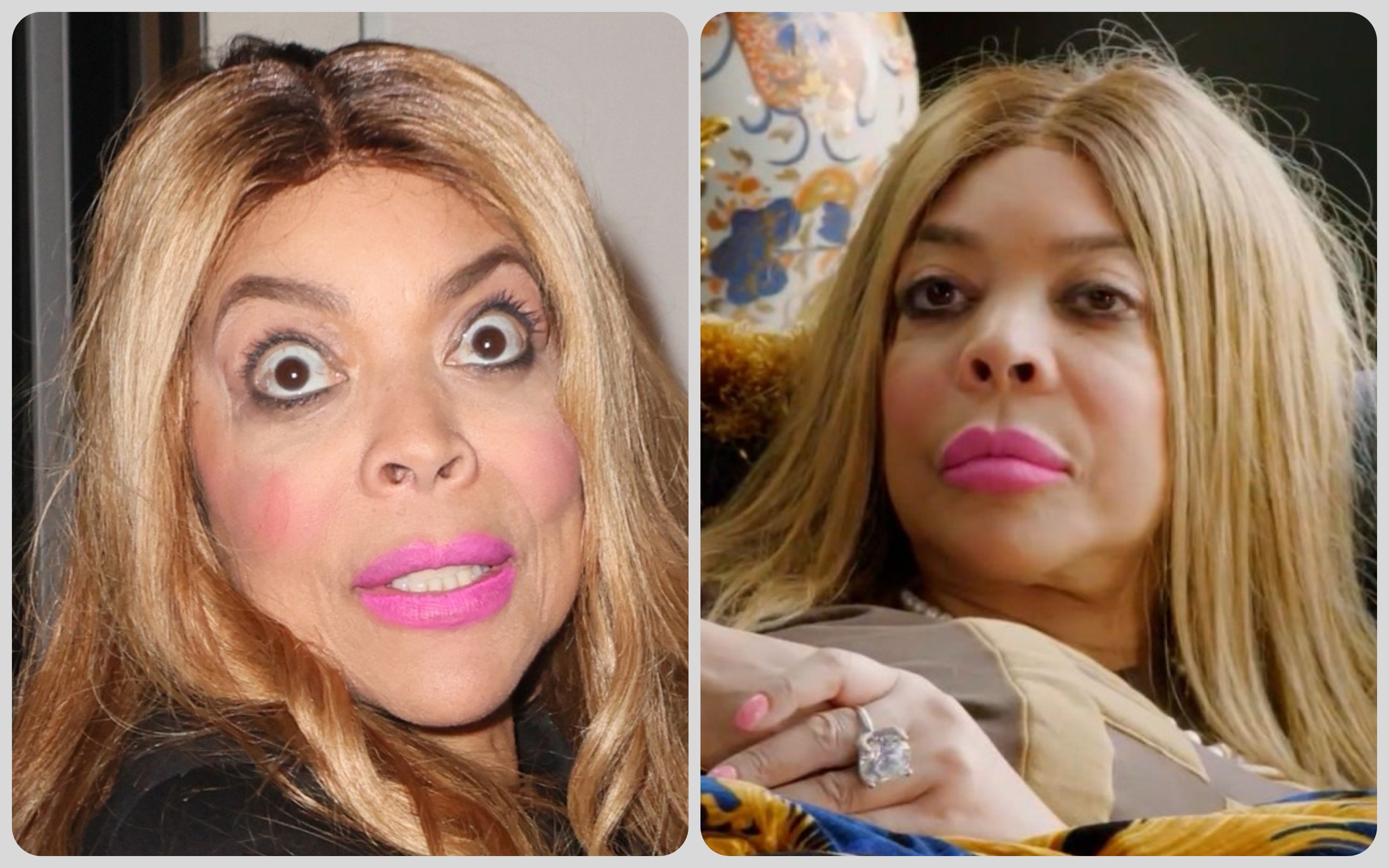The Queen of Daytime Drama Faces Her Toughest Battle
For decades, Wendy Williams reigned as the “Queen of All Media,” serving hot tea, eye rolls, and unforgettable shade across television, radio, and beyond. Her talk show empire made her a pop culture force who could make—or break—careers with a single side-eye. But now, the woman who made gossip a national pastime is caught in a story far darker than any Hot Topic segment she ever delivered.
In early 2024, news broke that Wendy, 60, had been diagnosed with primary progressive aphasia and frontotemporal dementia—a cruel one-two punch of conditions that affect speech, memory, and cognition. The revelation shocked fans and rattled Hollywood. After years of speculation about her health, the diagnosis offered an answer, but also raised a devastating question: What’s next for Wendy Williams?

A Legacy Overshadowed by Illness
Wendy’s decline didn’t happen overnight. Her long-running health struggles—from fainting live on air in 2017 to a string of absences blamed on Graves’ disease and lymphedema—have been tabloid fodder for years. But dementia changes the stakes.
Unlike other health issues, this isn’t something she can “bounce back” from with a strong wig game and sass. Primary progressive aphasia affects her ability to speak and understand language, while dementia chips away at her memory and executive function. For a woman whose voice was her empire, it’s an especially cruel twist of fate.
Yet, true to Wendy fashion, the illness has not dimmed the drama—it has only magnified the spectacle surrounding her personal life.
The Family Feud No One Saw Coming
Instead of uniting around Wendy during her most vulnerable time, her family has reportedly descended into a bitter feud over money, guardianship, and control.
At the heart of the storm is Wendy’s son, Kevin Hunter Jr., who has spoken out about his concerns over how his mother’s affairs are being managed. Meanwhile, Wendy’s sister and niece have publicly clashed with the court-appointed guardians overseeing her finances. Add in her ex-husband Kevin Hunter Sr. (who was cut off from Wendy’s money after their scandalous split), and you’ve got a family drama with all the makings of a messy reality series.
And in true Wendy fashion, the cameras are rolling. Her upcoming documentary, Where Is Wendy Williams?, promises to show viewers the raw, unfiltered chaos behind the headlines—though some family members are already calling it exploitative.
The Money Question
Of course, when there’s fame, there’s fortune—and when there’s fortune, there’s fighting.
Wendy’s talk show days brought in millions. At her peak, she was reportedly worth over $40 million, pulling in an annual salary of $10 million for The Wendy Williams Show. But with the show canceled in 2022 and her health issues mounting, the spotlight has shifted to where that money is now—and who controls it.
Currently, Wendy’s finances are being managed by a legal guardianship, which has sparked fierce debate. Supporters argue it protects her from exploitation; critics say it strips her of autonomy and funnels power to outsiders rather than family.
The bigger question: Can Wendy’s empire survive without Wendy?
Pop Culture Royalty in Decline
Wendy’s illness doesn’t just affect her family—it’s also a seismic shift for pop culture.
For years, she was the only daytime host willing to say the things others wouldn’t. Who else would gleefully shade Beyoncé’s intelligence, call out A-list marriages as “PR stunts,” or casually expose infidelities live on air? Wendy thrived on walking the line between outrageous and ruthless.
Her departure leaves a void in the gossip ecosystem that no one has quite managed to fill. The Hot Topics chair sits empty, and audiences are left with sanitized daytime chatter. Even celebrities who once feared her critiques now admit: Wendy made the culture more fun.

Hollywood Reacts
Reactions from Hollywood have been a mix of sympathy and nostalgia. Sherri Shepherd, who ultimately replaced Wendy’s show with her own, praised her as a “trailblazer.” Former co-hosts and guests have called her “fearless,” “messy in the best way,” and “the reason gossip blogs exist.”
But behind the tributes is an undeniable sadness. Wendy’s illness isn’t just the end of a career—it’s the unraveling of an icon who, for better or worse, defined an era of celebrity culture.
The Road Ahead
So where does Wendy Williams go from here?
The grim reality is that dementia is progressive and irreversible. Her family drama shows no signs of cooling down, and her career as audiences knew it is likely over. Yet, if Wendy taught us anything, it’s that she never plays by the script.
Even in decline, Wendy’s life remains a spectacle—part tragedy, part soap opera, and all too real. The cameras are rolling, the tabloids are circling, and the world is watching to see how one of pop culture’s loudest voices faces the silence of dementia.
For fans, it’s heartbreaking. For Hollywood, it’s a cautionary tale. And for Wendy herself? Well, she always said: “I’m a survivor.”
Sources
-
https://people.com/wendy-williams-diagnosed-with-dementia-aphasia-8606078
-
https://www.hollywoodreporter.com/tv/tv-news/wendy-williams-dementia-diagnosis-1235816959/
-
https://pagesix.com/2024/02/22/wendy-williams-diagnosed-with-dementia-and-aphasia/
-
https://variety.com/2024/tv/news/wendy-williams-dementia-aphasia-diagnosis-1235926161/


